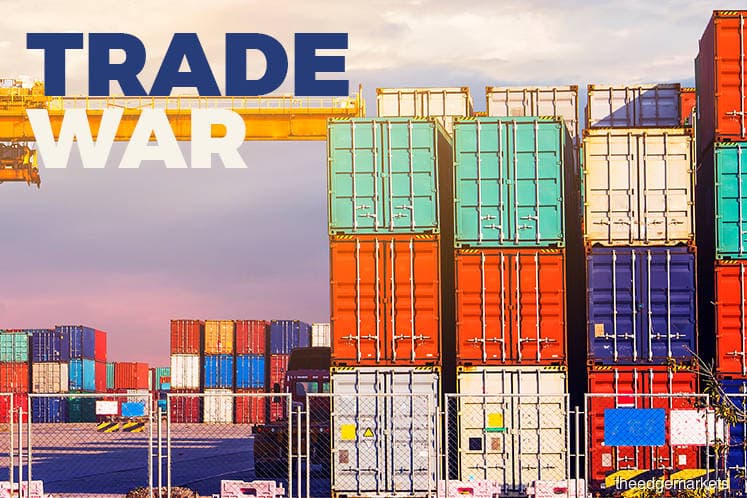
KUALA LUMPUR (Oct 16): The repercussions of the trade war between the USA and China could pose a bigger threat to the Malaysian economy, compared with the US Federal Reserve’s interest rates hike, according to Allianz SE chief economist Professor Dr Michael Heise.
“In my view, I think the trade spat and the trade war that could emerge is the biggest risk for Malaysia. The harm that would be done to the two dominant economies of the world, the US and the Chinese economy is going to have very negative repercussions for all suppliers indirectly, to both of these economies.
“There may be some benefits because some companies may relocate maybe out of China into Malaysia or other Asian economies to prevent or avoid tariffs, but this small benefit is going to be much outweighed by the contraction in demand to huge economies, therefore this really is the biggest risk,” he told reporters at a news conference organized by Allianz Malaysia Bhd today.
Heise opines the Fed will not take a hawkish stance on raising rates.
“The Fed is probably not going to be hawkish, so I would hope that the outflow or contraction of capital from Malaysia and other emerging markets is reaching an end, or maybe even correcting,and changing course in the next few years.
“Interest rate cycles occur every now and then, so [countries] have to be prepared and resilient..they happen but they never have lasting consequences. A trade fight [on the other hand] would have a lasting repercussion, as barriers to trade will be there for very long for economies like Malaysia,” Heise said.
On where Malaysian economy, being an oil-exporting nation, could seek reprieve in the form of higher oil prices should the trade war escalate, Heise said it could, but he also qualified that part of the reason oil prices had been increasing is due to political factors, which could change.
“That gives stability, definitely. Presently, the oil markets and the commodity markets are in an upswing: a lot of political reasons to it with the issues in Iran and problems in Nigeria and Venezuela, and Saudi Arabia of late, so you should not rely on high price, should some of these political issues change, then maybe oil prices could change, but its not something to rely on in the long term,” Heise said.